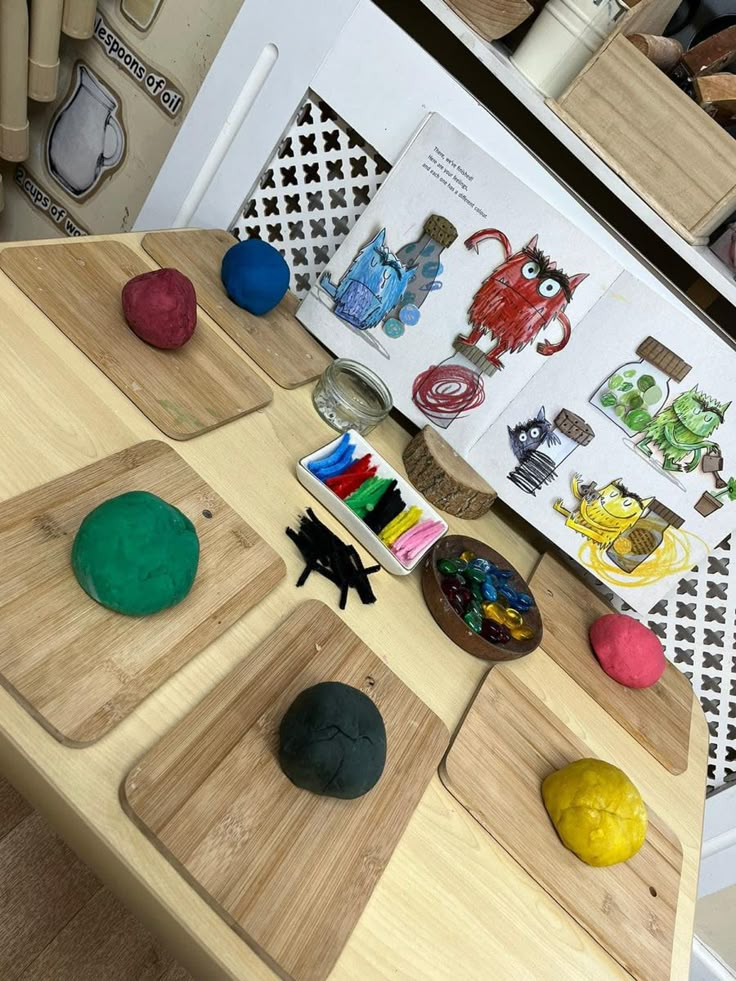How To Successfully Do A Screen-Free Week With Your Kids

Table of Contents
Planning Your Screen-Free Week: Setting the Stage for Success
A successful screen-free week starts with careful planning. Involving your children in the process is key to ensuring buy-in and minimizing resistance.
Preparing Your Kids
Children of all ages need to understand the "why" behind a screen-free week. For younger children, focus on the fun aspects – more playtime, family games, and creative activities. Older children can understand the benefits of improved focus, better sleep, and stronger family connections. A visual countdown calendar can build excitement and anticipation.
- Explain the benefits: Frame it positively! More time for family fun, increased creativity, improved sleep, and a chance to reconnect.
- Age-appropriate discussions: Tailor your explanation to their understanding. Young children might respond to "extra time for adventures," while older kids might appreciate discussions on digital detox and mental well-being.
- Create a visual countdown: A fun, engaging calendar helps kids track the days and builds anticipation for the activities planned.
Setting Realistic Expectations
Let's be honest, a completely screen-free week might be unrealistic for some families. Expect some initial resistance, minor meltdowns, and the occasional slip-up. The key is to adjust your expectations and remain flexible.
- Allow for exceptions: Consider allowing limited screen time for educational purposes or specific pre-approved occasions.
- Prepare for resistance: Anticipate some initial whining and adjust plans as needed. Flexibility is key.
- Embrace imperfections: A successful screen-free week isn't about perfection; it's about progress and prioritizing family time.
Gathering Alternative Activities
The most crucial aspect of a screen-free week is having engaging alternatives. Brainstorm activities as a family, creating a fun and exciting schedule. This shared planning process gets everyone involved and invested.
- Family activity calendar: Create a visual schedule showing planned activities. This prevents boredom and gives kids something to look forward to.
- Diverse activities: Include a variety of activities to cater to different interests.
- Examples of screen-free activities:
- Board games and puzzles
- Outdoor adventures (hiking, biking, playing in the park)
- Reading and storytelling
- Arts and crafts projects
- Cooking and baking together
- Family game night
- Visiting a museum or library
Navigating the Challenges of a Screen-Free Week
Even with careful planning, you might encounter challenges. It's crucial to have strategies in place to address potential issues proactively.
Managing Boredom and Whining
Boredom is inevitable. Instead of viewing it as a problem, see it as an opportunity for creativity and problem-solving.
- Redirect attention: Suggest alternative activities when boredom strikes.
- Positive reinforcement: Reward positive behavior and cooperation.
- Offer choices: Give your children some control by offering a selection of activities.
- Set clear limits: Establish boundaries and consequences for whining or complaining.
Handling Screen Time Cravings
Some children may experience withdrawal symptoms like irritability and restlessness. A distraction plan can help redirect their focus.
- Physical activity: Encourage outdoor play, sports, or other physical activities.
- Creative projects: Engage them in arts and crafts, building, or writing.
- Social interaction: Arrange playdates or family time.
- Prepare in advance: Discuss potential challenges and develop coping mechanisms before the week begins.
Addressing Family Conflicts
Conflicts may arise during the week, but effective communication and collaboration can resolve them quickly.
- Active listening: Listen to each other's perspectives without judgment.
- Compromise: Find solutions that work for everyone.
- Clear boundaries: Establish clear rules and consequences.
- Family meetings: Regularly check in to discuss how the week is going and address any concerns.
Maximizing the Benefits of Your Screen-Free Week
A successful screen-free week is more than just avoiding screens; it's about creating meaningful connections and fostering positive development.
Boosting Family Connection
Prioritize quality family time. Engage in activities that promote communication and strengthen bonds.
- Family meals: Enjoy meals together without screens.
- Game nights: Play board games or card games.
- Outdoor adventures: Go for walks, hikes, or bike rides.
- Storytelling: Share stories and memories.
Encouraging Creativity and Imagination
Unstructured playtime is crucial for cognitive development. Encourage imaginative play and creative exploration.
- Arts and crafts: Provide supplies for drawing, painting, and crafting.
- Building projects: Use LEGOs, blocks, or other construction toys.
- Role-playing: Encourage imaginative games and storytelling.
- Outdoor exploration: Explore nature and engage in sensory activities.
Improving Sleep Quality
Reduced screen time directly improves sleep quality. Establish healthy sleep habits to maximize the benefits.
- Consistent bedtime: Maintain a regular sleep schedule.
- Screen-free bedtime routine: Establish a relaxing bedtime routine without screens.
- Darkened room: Ensure a dark and quiet sleep environment.
- Comfortable bedding: Provide comfortable bedding and a cool room temperature.
Conclusion
Successfully navigating a screen-free week with your kids involves careful planning, proactive management of challenges, and a focus on maximizing the benefits. By following these steps, you can transform a screen-free week into a valuable experience, strengthening family bonds, fostering creativity, and improving everyone's well-being. Ready to embark on this rewarding journey? Try a screen-free week for families and share your experience! Let us know how your successful screen-free week goes in the comments below. We'd love to hear your tips and tricks for making a screen-free week work for your family! Share your success stories and help other parents plan their own successful screen-free week.

Featured Posts
-
 A Practical Approach To A Screen Free Week For Families
May 22, 2025
A Practical Approach To A Screen Free Week For Families
May 22, 2025 -
 The Goldbergs The Shows Impact On Pop Culture
May 22, 2025
The Goldbergs The Shows Impact On Pop Culture
May 22, 2025 -
 Jail Sentence For Mother Following Southport Stabbing The Impact Of Social Media
May 22, 2025
Jail Sentence For Mother Following Southport Stabbing The Impact Of Social Media
May 22, 2025 -
 Switzerland China In Talks To Reduce Trade Tariffs
May 22, 2025
Switzerland China In Talks To Reduce Trade Tariffs
May 22, 2025 -
 Love Monster Practical Advice For Healthy Relationships
May 22, 2025
Love Monster Practical Advice For Healthy Relationships
May 22, 2025
Latest Posts
-
 Antiques Roadshow Arrest Couple Charged With Trafficking National Treasure Following Shocking Appraisal
May 22, 2025
Antiques Roadshow Arrest Couple Charged With Trafficking National Treasure Following Shocking Appraisal
May 22, 2025 -
 National Treasure Trafficking Antiques Roadshow Episode Results In Couples Arrest
May 22, 2025
National Treasure Trafficking Antiques Roadshow Episode Results In Couples Arrest
May 22, 2025 -
 Antiques Roadshow Appraisal Uncovers Crime Results In Arrest
May 22, 2025
Antiques Roadshow Appraisal Uncovers Crime Results In Arrest
May 22, 2025 -
 Antiques Roadshow Couple Arrested After Jaw Dropping Appraisal Reveals National Treasure Trafficking
May 22, 2025
Antiques Roadshow Couple Arrested After Jaw Dropping Appraisal Reveals National Treasure Trafficking
May 22, 2025 -
 Stolen Goods Confession Antiques Roadshows Unexpected Legal Ramifications
May 22, 2025
Stolen Goods Confession Antiques Roadshows Unexpected Legal Ramifications
May 22, 2025
